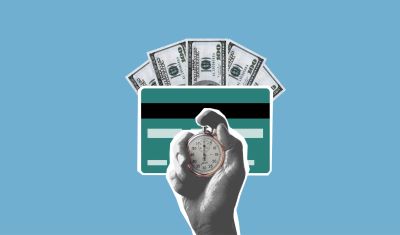

Table of Contents
Managing your finances is one of the top challenges of running a home business.
Unless you have an accounting or finance degree, following the money for your business can be tough.
When I launched my finance practice, I had an MBA and Wall Street experience.
Yet, even with my finance expertise, I still had to carve out time to collect financial receipts, coordinate bank statements, and enter the data into accounting software.
As soon as I hired a professional bookkeeper, I immediately had more time to focus on running the business and collaborating with clients.
Since finances are an essential part of your solopreneur business plan it’s important that you understand and address them.
Top 3 Signs You Need a Bookkeeper
- You struggle to organize your financial records
- You fail to get financial information to your CPA on time
- You are unsure how to track the cash flow of your business
Now that you know the signs to watch, here are the 5 key benefits a professional bookkeeper brings to your one-person business.
- Coordinate financial records
- Offer financial pros and cons for business decisions
- Prepare financial statements for your accountant
- Create compensation ranges for new hires
- Develop a record-keeping system for future bookkeepers
Let’s take a closer look at each of the benefits.
[convertkit form=6927414]
Coordinate Financial Records
They collect the financial ‘story’ of your one-person business and give it structure.
They use software programs to organize your financial data, and they build insightful reports.
These reports can help you make smarter operating decisions and alleviate fiscal challenges.
Fiscal reports empower you to build an accurate budget, which keeps you on the right side of the finance highway.
Once you have a budget, it’s easier to make smart decisions about operations and understand how and where you can allocate your fiscal resources.
A bookkeeper organizes your bank statements, invoices, credit card statements, and receipts.
Present Options for Operating Decisions

A bookkeeper’s reports highlight areas to improve.
For instance, you might spend too much each month on tech tools or subscriptions. You may not have the sales to offset these expenses.
A bookkeeper develops financial ratios to measure profitability and efficiency.
Key finance ratios highlight how sales and expenses interact across various categories.
A few examples of key financial ratios include:
Operating margin = operating profit / sales
Net margin = net profit / sales
When you track your business’s key financial ratios over time, you can tell where your solo business performs well or needs attention.
Prepare Financial Records for Your Accountant

Organizing financial records for your accountant takes time. A bookkeeper develops a push-button system to prepare all financial statements.
This system helps your accountant prepare quarterly and year-end filings.
Also, your CPA gets more time to assess your fiscal strategies with you and help you make smart financial choices.
Create Compensation Ranges for New Hires

Hiring a team elevates your business. Before you hire teammates, a bookkeeper can give you insight on what you can afford.
They can also show you how much your sales need to grow to offset the cost of hiring part-time help.
Once you hire part-time help, you need to maintain payroll and invoice records. These need attention and organization.
A bookkeeper coordinates an accurate system to track payroll and file employee reports.
Create a Smart System for the Next Bookkeeper
If you and your bookkeeper part ways, you will want to replace them. On-boarding a new bookkeeper is easier when your systems are in good order.
Your first bookkeeper may have a learning curve as they create a system and organize your data.
Once this process is set, a new bookkeeper can step in and assume the role without complications.
A bookkeeper is key to helping you organize and prioritize your financial choices.
Where Do You Find a Sharp Bookkeeper?

Ask Your Accountant
Your accountant collaborates with other business owners and may know several bookkeepers.
Tell your accountant which finance projects are most difficult for you to complete.
Chances are good that your accountant will have one or two referrals they can make on your behalf.
Ask Your Business Network

Solopreneurs in your network can be a good choice for a bookkeeper referral. An introduction from another solopreneur highlights the skills, reputation, and pricing of bookkeeper candidates.
Conduct your own research for each referral. Coordinate an interview to ensure a referral meets your business needs and budget.
If you’re curious about what types of questions to ask your referral network, you can start with these popular bookkeeper interview questions.
Explore Social Media
A great place to start is with national organizations and associations that specialize in accounting and bookkeeping.
The (AICPA) Association of International Certified Professional Accountants) is a good resource.
You can consult the bookkeepers, who promote their services online. A bookkeeper who piques your interest warrants review.
Check their website, licensing, and experience before scheduling an interview.
If you are coordinating an interview, request professional references and conduct independent research.
How Much Will It Cost to Work with a Bookkeeper?

The average cost for a part-time bookkeeper varies by experience and responsibility.
The pricing options vary depending on the amount of work you need and the size of your business.
You can pay a bookkeeper an hourly rate or by the scope of the project(s). Bookkeepers will discuss their rates. You should feel comfortable asking them for a pricing schedule.
The CPA firm of Lalea & Black in Los Angeles, CA offers insight and benchmarks here.
Pros and Cons of Hiring a Bookkeeper
Save Time

A bookkeeper gives you time to focus on key business activities. Dedicate your time to revenue-generating activities: marketing, client research, and sales.
A bookkeeper will give you fiscal reports to measure your sales and marketing projects.
These keep you on track to make sure your return on investment warrants your efforts.
Financial Insight
A bookkeeper provides valuable insight into the financial health of your business.
Finance may not be your top skill. A professional bookkeeper can help you understand key concepts.
Big business decisions such as buying new technology and hiring a virtual assistant merit review.
A bookkeeper provides helpful financial scenarios to evaluate your options.
Navigate Tax Season
Give your accountant a shoebox full of receipts, and they’ll need more time to prepare your taxes.
Your CPA may have to charge you more to prepare your taxes if you ask them to coordinate all your records.
A bookkeeper can create an efficient flow of financial data and statements for your CPA, which makes your CPA’s job easier.
Also, you’ll get more time with your accountant to discuss specific tax issues rather than looking for receipts.
Trust

You’ll likely have to provide your bookkeeper with private financial information such as bank and credit card statements.
It’s important that you hire and work with a bookkeeper who has a good track record of protecting private financial records.
Cover your bases by asking bookkeeper candidates for professional references.
Contact each reference to ask about a candidate.
This elevates your trust in the candidate’s ability to secure private financial information.
Cost
In the early stages of your business, you may not have the extra cash flow to pay a bookkeeper. Discuss your financial picture with bookkeeper candidates.
Bookkeepers understand ‘extra’ costs. A candidate might offer a sliding scale to help defray the costs.
As your business grows, you can increase a bookkeeper’s role and their compensation.
A professional bookkeeper can be a valuable addition to your solopreneur business.
- You gain valuable hours to pursue key business activities
- You get updates on the financial health of your business
- You receive options on various operating decisions
- You help your CPA create accurate and timely financial reports
Frequently Asked Questions
Do you have to provide the bookkeeper with their own computer and accounting software?
No. Bookkeepers should have their own PC or laptop and have comfort working with several different accounting software programs. The bookkeeper will load your financial data into their accounting software.
Due to the privacy of your financial data, be sure to clarify with your bookkeeper how they protect it.
What happens to your financial data if you and your bookkeeper part ways?
Discuss this issue before you hire your bookkeeper.
It’s essential that your bookkeeper store your financial data in a safe manner.
Encryption tools are a good first step.
Helpful Resources
Solopreneur Doorway is the weekly solopreneur newsletter that gives you insight on how to run a profitable solo business. You get growth ideas and tools to use in every 3-minute issue.
Your custom, 90-minute coaching session gives you the specific recommendations to turn your challenges into more clients and higher sales.
Recent Posts
Choose Your Category
About Erik

Erik Duncan has over 17 years of business and finance experience including investment banking, investment management and starting a successful finance company. He received his MBA in Finance from The Wharton School of Business and his MHA from The University of Iowa.
Join the Solopreneur Doorway newsletter
Brings you more customers so that you take the vacation you deserve.

